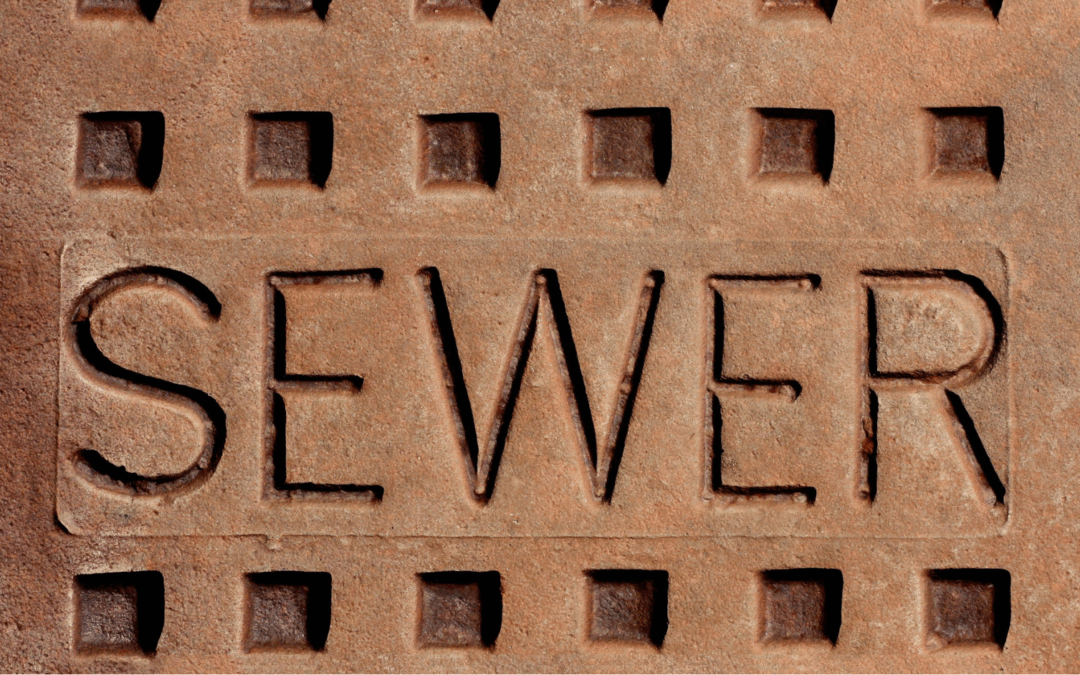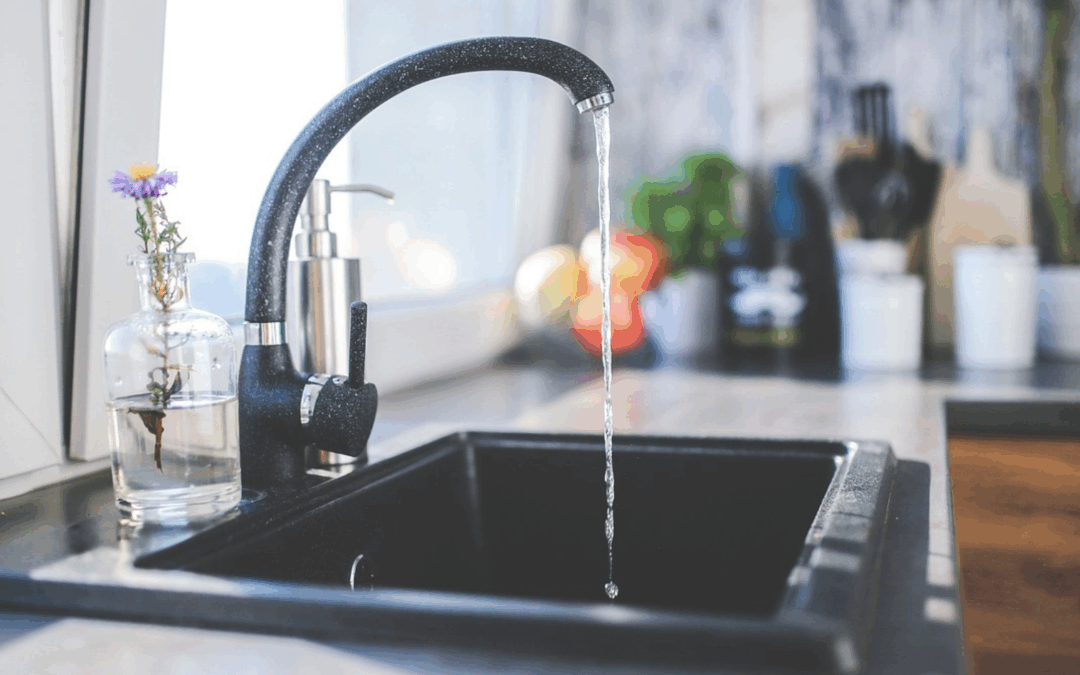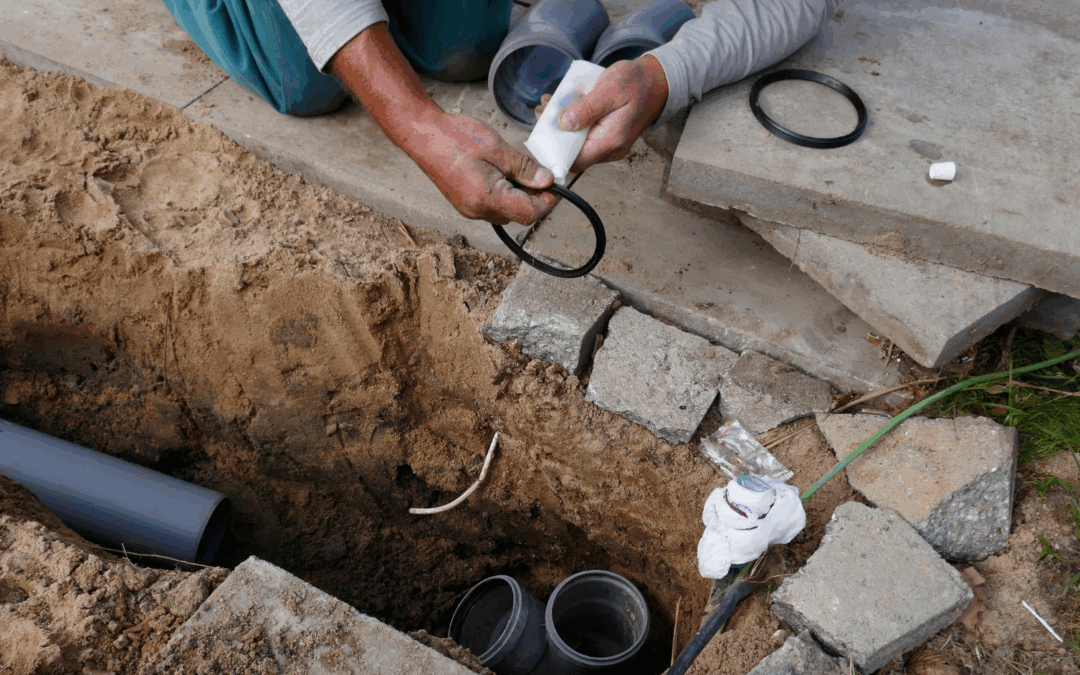As spring is in full swing, are you concerned you might have tree roots in sewer line problems?
As a homeowner, there are countless elements of your property you must keep an eye on. One often-overlooked but critically important feature is the sewer system.
While a properly functioning sewer line quietly and effectively removes waste, ensuring the health and hygiene of your home environment, the intrusion of tree roots can mean trouble – and not the kind you can sweep under the rug.
Schedule Service Online
Get a free estimate so you know what you're signing up for
"*" indicates required fields
For Emergency Services Call: 410-255-9300
In this comprehensive guide, we’ll explore how tree roots can wreak havoc on your sewer lines, the telltale signs to watch for, and the proactive steps you can take to prevent and address this common issue.
Whether you’re a seasoned homeowner or new to the game, the information within these digital pages could save you from significant headaches – and costs – down the line.
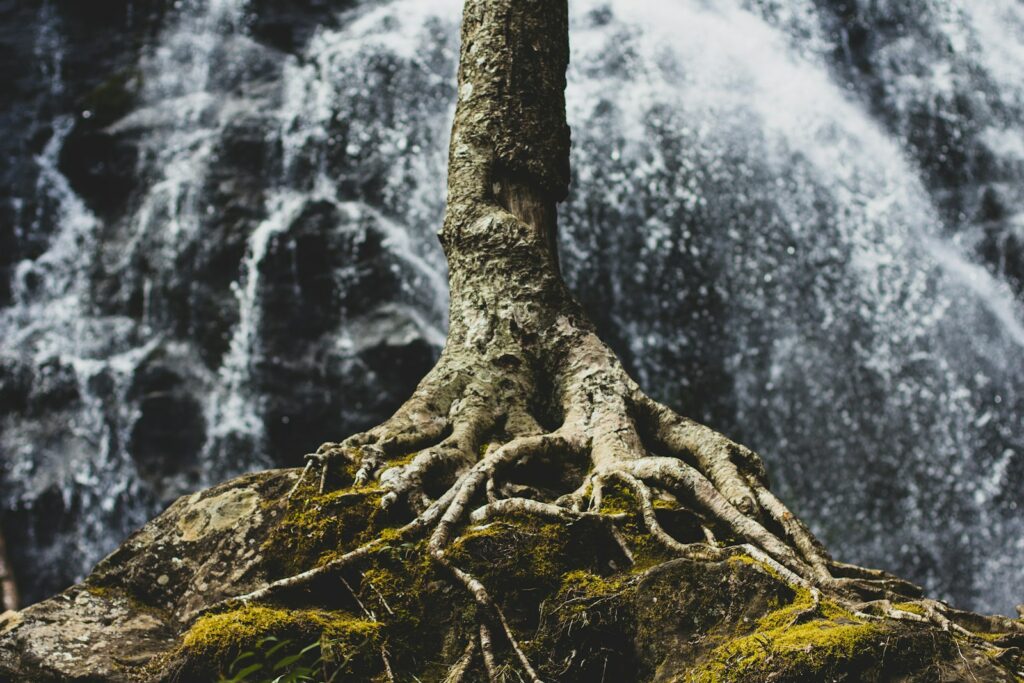
Understanding the Intrusion
How Roots Find Their Way In
A tree’s roots exist to seek out water and nutrients, meaning tree roots naturally grow to your sewer line. Your underground sewer line makes the perfect conduit for root growth. Even the smallest crack or joint in the pipe can become a welcome access point for a root system.
Once inside, roots can grow quickly, pushing through the pipe and causing a range of issues from minor blockages to severe damage to your main sewer line.
Unwelcome Guests Are In Your Sewer Pipes – Now What?
When root intrusion occurs, the symptoms may not be obvious at first, but over time, you might notice your drains emptying more slowly, hear gurgling noises from your toilet, or even catch the scent of sewage around your home.
Surprisingly, some homeowners never even realize they have a root problem until more drastic indicators appear, like multiple drain stoppages or raw sewage backing up into the house. This can become a problem with your main sewer line faster than you would expect. A sewer camera inspection can figure out how dangerous the problem has become.
The Dangers of Ignoring the Issue
The Silent Destroyers of Sewer Lines
Trees roots inside of your sewer pipes are like a ticking time bomb. What starts as a minor inconvenience can lead to catastrophic failures in your plumbing system.
The force of roots growing can crack and collapse pipes, causing extensive – and expensive –damage to your home’s foundation, landscape, and more.
Financial Fallout
Repairing the damage caused by tree roots can put a significant dent in your wallet. The average cost of repairing a sewer line can range from several hundred to several thousand dollars, depending on the extent of the damage and the method required to fix it.
These expenses can quickly escalate if the root intrusion necessitates professional excavation or the replacement of the entire sewer line.
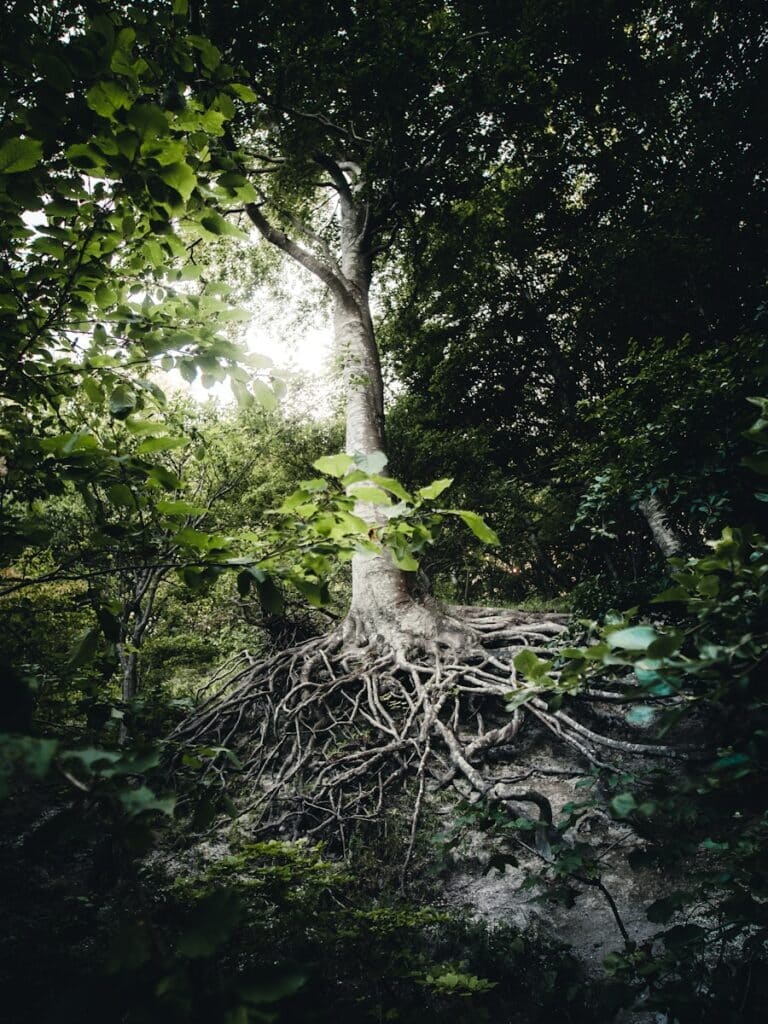
A Battle Plan Against Root Intrusion
Keeping Trees and Sewers in Harmony
One of the most effective defenses against root intrusion is planning the layout of your landscape with intention. Understanding the type of trees and their root systems can ensure you plant them at a safe distance from your sewer line.
Routine Maintenance – A Life Saver in Disguise
Scheduling regular inspections of your sewer line, especially if you have trees in close proximity, can catch root intrusion in its infancy.
Inspections can be done with specialized cameras and video technology, allowing plumbers to detect the problem without invasive measures like digging up your yard.
Sign Roots in Sewer Line Have Become A Problem For You
If you suspect tree roots may be compromising your sewer line, look out for these critical signs indicating the situation has escalated beyond a minor inconvenience:
- Frequent Clogs and Backups: If your toilet, sink, or bathtub frequently clogs or you experience backups, tree roots may have invaded your sewer line.
- Gurgling Noises: Unusual sounds emanating from your plumbing system, especially gurgling noises from toilets and drains, can be a telltale sign of root intrusion.
- Slow Draining: Drains that take longer to empty than usual can indicate a partial blockage caused by tree roots.
- Unpleasant Odors: An unmistakable sign of sewer line issues is the presence of foul odors around your property, suggesting a sewer line breach by tree roots.
- Increased Water Bills: An unnoticed leak caused by root damage can lead to a sudden increase in your water bill.
- Lush Patches of Grass: If certain areas of your lawn are unusually lush or green, it could be due to the extra nutrients from a leaking sewer line.
- Sinkholes or Indentations in Your Yard: The presence of sinkholes or noticeable indentations in your lawn can be a direct consequence of underlying sewer line damage from roots.
Cutting the Roots of the Problem
DIY Root Clearing – A Short-Term Solution
For minor root intrusions, there are products available that can temporarily clear roots from your sewer line. However, these fixes are generally short-term and might not address the underlying issue.
Remember, safety first – always follow manufacturer instructions and consider consulting with a professional if you have any doubts.
Professional Solutions that Go Beyond Expectations
When root intrusion is severe, calling in the experts is your best – and often only – option. Professional plumbers can use a range of tools and methods, from mechanical rooters to high-pressure hydro jetting, to clear out your sewer line effectively.
In some cases, they can even install a physical barrier within the pipe to prevent roots from regrowing.
Proactive Measures to Keep Tree Roots Away from Your Sewer Lines
Keeping tree roots away from your sewer lines can save you from the inconvenience and potential disaster of root intrusion.
Here are several strategies that can help maintain a safe distance between tree roots and sewer lines, ensuring the integrity of your home’s plumbing system:
- Choose the Right Trees: Opt for tree species with less aggressive root systems if you’re planting new trees near your sewer lines. Some species are known for their less invasive roots, reducing the risk of intrusion.
- Plan Your Landscape Wisely: When landscaping, ensure trees are planted at a safe distance from sewer lines. A general rule is to plant trees at least 10 feet away from sewer lines, but the further, the better, especially for trees with large root systems. Try to only plant sewer safe trees.
- Barrier Installation: Consider installing physical root barriers made of metal or plastic around your sewer lines. These barriers can direct roots deeper into the ground and away from your pipes, preventing potential intrusion.
- Regular Sewer Line Inspections: Implementing a routine of regular sewer line inspections can catch early signs of root intrusion. Advanced techniques, such as a sewer camera inspection, offer a non-invasive way to monitor the condition of your sewer pipe lines.
- Root Maintenance: Regularly trimming the roots of trees near your sewer lines can help prevent them from reaching and damaging the pipes. However, this should be done by professionals to avoid harming the tree or the sewer system.
- Use Growth Inhibitors: Chemical growth inhibitors can discourage root growth near sewer lines. These chemicals are designed to be environmentally friendly and target only the roots that pose a threat to your pipelines, without harming the tree itself or nearby vegetation.
Implementing these strategies can significantly reduce the risk of tree root intrusion into your sewer lines, safeguarding your home’s plumbing infrastructure and preventing costly repairs.

Why You Shouldn’t DIY Tree Root Removal Near Sewer Lines
Removing, killing, or trimming tree roots near your sewer lines through DIY methods may seem like a quick fix, but it can lead to several complications. You shouldn’t remove tree roots, use foaming root killer, trim as tree roots grow, or consider tackling tree roots unless you are a professional.
Here are crucial reasons to avoid taking these tasks into your own hands:
- Risk of Damaging the Sewer line: Without proper equipment and expertise, there’s a high risk of causing further damage to your sewer line while attempting to remove or kill tree roots.
- Potential Harm to the Tree: DIY methods can severely damage the health and stability of the tree. Removing tree roots or poisoning its roots may kill or weaken the tree, leading to potential safety hazards if the tree becomes unstable.
- Environmental Concerns: Chemicals used to kill roots can leach into the soil and water, posing risks to the surrounding ecosystem and potentially contaminating your property.
- Temporary Solutions: DIY attempts often provide only temporary relief. Without addressing the underlying issues, tree roots are likely to regrow and cause the same problems again.
- Legal and Regulatory Issues: There may be local regulations or by-laws governing the removal of trees or roots, especially for mature trees. DIY methods could inadvertently violate these regulations, leading to fines or legal troubles.
- Lack of Comprehensive Approach: Professional services not only remove the current problem but also assess and implement solutions to prevent future issues. DIY methods lack this comprehensive approach, potentially leading to recurring problems.
It’s advisable to consult with a professional plumber who can assess the situation thoroughly and provide a solution that is safe, effective, and sustainable, ensuring the long-term health of both your trees and sewer lines.
The Importance of Professional Evaluations of Your Sewer System
Regular assessments of your sewer system by a professional plumbing and sewer company are crucial, especially in the context of mitigating tree root intrusions.
These evaluations, ideally conducted every few years, offer numerous benefits:
- Expertise: Professional plumbers have the expertise and equipment needed to accurately assess the health of your sewer lines. They can detect issues that might not be obvious to the untrained eye, ensuring that even the slightest signs of root intrusion are identified early.
- Preventative Measures: A professional inspection can serve as a valuable preventative measure against future problems. By identifying potential risks early on, you can take the necessary steps to avoid extensive and costly damage to your sewer system.
- Comprehensive Solutions: In the event that tree roots have already infiltrated your sewer lines, professionals can offer a range of solutions tailored to the severity of the intrusion. From mechanical root cutting to sewer line replacement, they ensure that the intervention selected is the most effective for your situation.
- Cost Savings: While regular professional inspections involve a cost, they can ultimately save homeowners money. By preventing severe damage to your sewer lines, you avoid the need for more extensive, and therefore expensive, repairs down the line.
- Peace of Mind: Knowing that your sewer system is in good health and free from potential threats such as tree root invasion can give you peace of mind. Regular inspections ensure that your property’s plumbing system is not just functional but also protected from one of the most common issues facing homeowners.
In sum, scheduling regular professional inspections of your sewer system is a prudent investment in the longevity and efficiency of your home’s plumbing infrastructure. It’s a small price to pay for the assurance that your sewer lines are safe from the damaging effects of tree root intrusions.

Modern Methods for a Modern Problem
The Cutting Edge of Sewer Line Maintenance
These methods not only save time and money but also reduce the risk of future root intrusion.
Root Barriers – The No Entry Sign for Trees
Another innovative solution is the installation of root barriers. These systems create a physical barrier around your sewer line, deterring roots and protecting the integrity of your pipes.
While not a one-size-fits-all solution, root barriers can be highly effective when properly installed and maintained.
The Lasting Impact of a Vigilant Approach
Act Now, Save Later
The consequences of root intrusion in your sewer system can be dire, but with knowledge and action, you can prevent an underground disaster.
Make it a habit to periodically inspect your sewer line, understand the trees on your property, and don’t hesitate to call on professional guidance when needed. The health of your home and your peace of mind depend on it.

Your Fortress Starts Here
With every measure you take, from planting smart to employing technology, you strengthen the defenses of your sewer line.
Remember, root intrusion doesn’t have to be the villain in your homeowner’s story. By being proactive, informed, and prepared, you can keep your sewer system clear and your worries at bay.
Now is the time to assess your situation. Do you have trees near your sewer line? When was the last time you had an inspection?
These are not questions to be shelved for later. Take your home’s future into your hands and address root intrusion before it addresses you.
For those who haven’t checked their sewer lines, or are concerned about potential root issues, we are here to help.
Contact us today to schedule a professional inspection and discuss the best preventative measures for your property. Your home – and your budget – will thank you.


